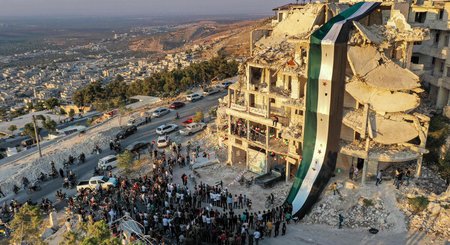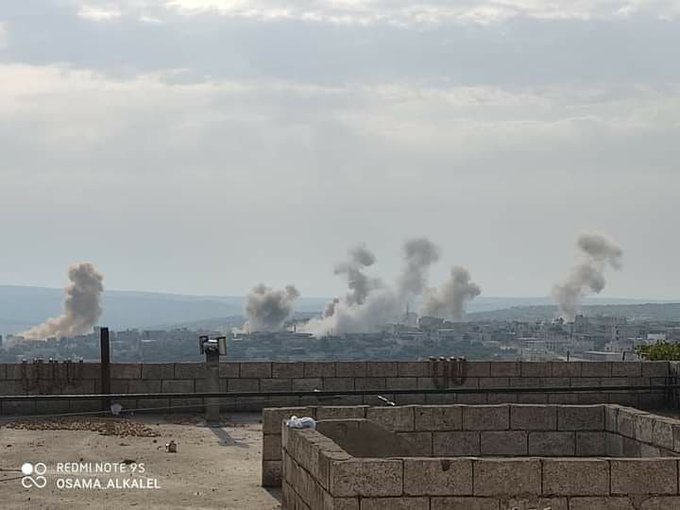
According to the UN, the situation in Syria constitutes "the most serious humanitarian crisis in the world today". The number of people living in the Idlib region, which the Syrian reégime wants to regain control of, is estimated at more than 4 million people, including one million children. The majority of these people are displaced, living in tents among the rocks or sheltered under a rickety olive tree. Each month, the humanitarian situation worsens a little more, food aid is not sufficient to cover the needs of all the displaced people.
Since July, the situation has been even more alarming after the closure of one of these sites, that of Bab al-Salamah, north of the city of Aleppo, following the Russian and Chinese veto at the United Nations Security Council. Today, the only trucks that can still access this rebel enclave must pass through Bab al-Hawa, north of Idlib. Since the start of 2020, their number has been divided by four. According to UN figures, last May 9.3 million people were food insecure in Syria, some 56% of the population.
For now, the ceasefire signed between the Turks and the Russians, staunch allies of the Damascus régime, has withstood a few strikes and violations. Ahlam Rashid remains on the alert. “If the bombardments were to resume, we wouldn't have enough to help the population. Landlocked, the Syrians lack everything, medical facilities are too rare and in any case, they have nothing left. "
For three years, the Idlib region has had a so-called “salvation” government. Officially, this local administration is separated from Hayat Tahrir al-Sham (HTS), heir to Jabhat al-Nusra, the Syrian branch of al-Qaeda. This group, which dominates the region, is included in the list of terrorist groups by the UN, a blacklist which limits the support of international organizations to the Syrian population.
In his office, Ali Keda, the prime minister of the local government, appealed to the West: “The European Union must recognize the reality of the situation in Syria. The Syrian people want peace, but the régime at the head of the country is terrorist. We need to establish international relations with other countries in order to fight against it. We need everything, water, electricity, food, jobs for the Syrians who have nothing left… For that, the international organizations must coordinate with our government.”
Like him, Sheikh Abd al-Rahman Atoun, head of the Sharia Council at HTS, underlines the need for the local population to obtain more support. “We are currently trying to present our true image. The point is not to make a darker or more beautiful portrait, just to show reality. The people here are not like those in Raqqa during the days of the IS caliphate. ” And to add: “Our group is not a threat to the West. The region needs international help to rebuild itself. We are the last to fight against the régime and its allies, but we will not be able to eliminate it without help.”
At the end of August, the first inhabitant of Idlib died of the coronavirus. Currently, around sixty residents are believed to be infected. If ever the pandemic were to spread in the region, the situation could very quickly become catastrophic. As Ahlam Rashid underlines again, in the middle of the tents of displaced people: “How do you want to set up a containment? The population already struggles to survive.” '

No comments:
Post a Comment